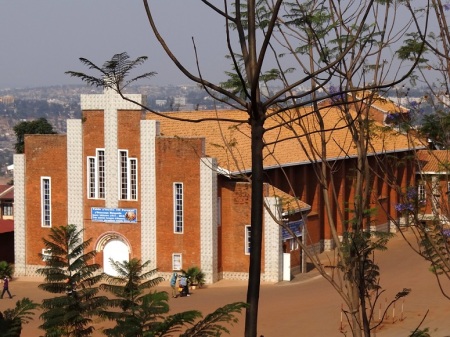Rwanda: Over 8,000 Churches Close After Gov't Passes Law Regulating Religious Groups

The Rwanda Governance Board continues to close churches it says fail to meet requirements laid down at the beginning of the year. New requirements set in place for those congregations that want to continue ministry are also complicating efforts to comply.
Many see the closures as part of an effort by the government to make its aggressive secular stance clear.
According to a report by Rwanda's pro-government KT Press, more than 8,000 churches have now been closed, and the number keeps growing.
"On checking which churches were included, we learned that all churches are suffering the same fate, and that even churches considered luxurious for local standards have had to close," a local analyst, who wished to remain anonymous, told World Watch Monitor.
World Watch Monitor learned that in one village the church was closed while a wedding was ongoing. The couple and all the guests were simply told to leave the church during the service, and the church was closed.
Another church was stopped from having services and other meetings (such as home groups) in a school hall as an alternative after all the churches in that parish had been closed. The church had timber instead of a metal door and window frames, and was told the roof also needed to be elevated "just a little."
"It seems that the local authorities in the different districts initially had some freedom about the degree to which they could enforce the new requirements," the local analyst said. "However, it now seems that those who were more lenient have been rebuked and have become stricter. In one district authorities banned all meetings of a closed church, and congregants are not even allowed to meet in home groups."
One congregation now meets in a church building in another neighborhood. Another congregation's members walk more than 12 miles (20km) to attend church in a neighboring community after their church was closed.
New Requirements
Many new requirements not originally included in the directive have now been added, including:
- Toilets being a certain distance from the church entrance. In one instance local authorities entered the church halfway through the service and ordered the people to leave because the church would be closed. This church has fulfilled 80% of the requirements and was not aware of this new requirement.
- Congregations have been told they also need to install a certain kind of canvas ceiling, even though that material carries a considerable fire hazard.
- One church was told it needed to change its roof and rebuild one of the brick walls. This will be hard for them to do as they have already been forced to make loans and depend on the goodwill of businessmen to meet the initial requirements.
- Church access roads as well as church compounds need to be paved.
- The inside walls and ceilings in the church must be plastered and painted. Exposed brick is not allowed anymore.
- All churches must have lightning-conductors.
- All pastors now need to have a theological degree. This was already communicated as a requirement, but now the degree needs to be from an accredited institute.
- Another new law states that only institutions that also teach science and technology can teach theology, meaning that few of the many (often highly regarded) theological institutions or Bible schools are regarded as valid.
This law is being enforced even though it has not yet been approved officially. In most cases it is almost impossible for churches to make the required changes within the given timeframe of 15 days.
Secular Country
Rwandans' right to religious freedom is granted under article 37 of the 2003 constitution, which was amended in 2015. Prof. Anastase Shyaka, CEO of Rwanda Governance Board, in a television show on July 15 claimed that churches that had been closed in fact remained active, with their right to religion guaranteed.
There has also been a marked increase in secularism in the government:
- They no longer allow prayer meetings in government institutions, which used to be very common.
- Words referring to the Christian faith have been removed from the preamble of the Constitution.
- During the commemoration of the genocide, neither pastors nor priests (who used to play a prominent role in past commemoration events), can speak or preach any more, unless the event is organized by a church.
- Two Sundays per month, main roads are closed, meaning that many people cannot reach their church. Church attendance has declined.
- Many Rwanda Patriotic Front (the ruling political party) meetings and other activities that may be compulsory are arranged for Sundays.
On paper, the same rules apply to Muslims as to Christians, but in practice this is not the case. Muslim clerics indicated that they would appeal the decision outlawing the calling of worshipers to prayer over loudspeakers. For now, the practice continues.
There is a high level of fear among church leaders. Shortly after the new requirements began to be implemented, officials arrested six pastors accused of plotting to defy the government orders. Although the pastors have since been released, a senior church leader explained that the arrest served as a stern warning to others to not resist the move.
The article was originally published on World Watch Monitor here.





















